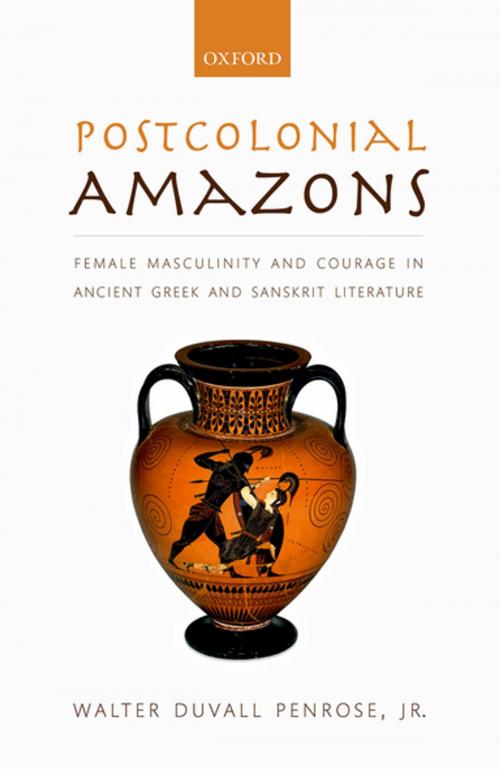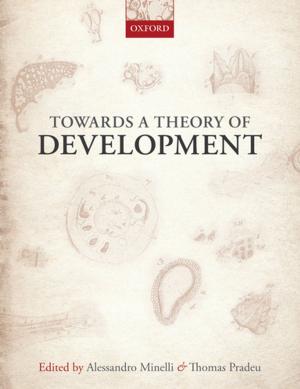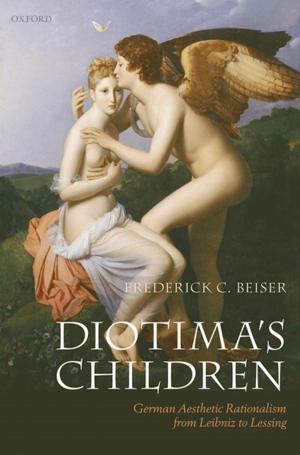Postcolonial Amazons
Female Masculinity and Courage in Ancient Greek and Sanskrit Literature
Nonfiction, History, Ancient History, Greece, Fiction & Literature, Literary Theory & Criticism| Author: | Walter Duvall Penrose, Jr. | ISBN: | 9780191088032 |
| Publisher: | OUP Oxford | Publication: | October 27, 2016 |
| Imprint: | OUP Oxford | Language: | English |
| Author: | Walter Duvall Penrose, Jr. |
| ISBN: | 9780191088032 |
| Publisher: | OUP Oxford |
| Publication: | October 27, 2016 |
| Imprint: | OUP Oxford |
| Language: | English |
Scholars have long been divided on the question of whether the Amazons of Greek legend actually existed. Notably, Soviet archaeologists' discoveries of the bodies of women warriors in the 1980s appeared to directly contradict western classicists' denial of the veracity of the Amazon myth, and there have been few concessions between the two schools of thought since. Postcolonial Amazons offers a ground-breaking re-evaluation of the place of martial women in the ancient world, bridging the gap between myth and historical reality and expanding our conception of the Amazon archetype. By shifting the centre of debate to the periphery of the world known to the Greeks, the startling conclusion emerges that the ancient Athenian conception of women as weak and fearful was not at all typical of the world of that time, even within Greece. Surrounding the Athenians were numerous peoples who held that women could be courageous, able, clever, and daring, suggesting that although Greek stories of Amazons may be exaggerations, they were based upon a real historical understanding of women who fought. In re-examining the sources of the Amazon myth, this compelling volume resituates the Amazons in the broader context from which they have been extracted, illustrating that although they were the quintessential example of female masculinity in ancient Greek thought, they were not the only instance of this phenomenon: masculine women were masqueraded on the Greek stage, described in the Hippocratic corpus, took part in the struggle to control Alexander the Great's empire after his death, and served as bodyguards in ancient India. Against the backdrop of the ongoing debates surrounding gender norms and fluidity, it breaks new ground as an ancient history of female masculinity and demonstrates that these ideas have a much longer and more durable heritage than we may have supposed.
Scholars have long been divided on the question of whether the Amazons of Greek legend actually existed. Notably, Soviet archaeologists' discoveries of the bodies of women warriors in the 1980s appeared to directly contradict western classicists' denial of the veracity of the Amazon myth, and there have been few concessions between the two schools of thought since. Postcolonial Amazons offers a ground-breaking re-evaluation of the place of martial women in the ancient world, bridging the gap between myth and historical reality and expanding our conception of the Amazon archetype. By shifting the centre of debate to the periphery of the world known to the Greeks, the startling conclusion emerges that the ancient Athenian conception of women as weak and fearful was not at all typical of the world of that time, even within Greece. Surrounding the Athenians were numerous peoples who held that women could be courageous, able, clever, and daring, suggesting that although Greek stories of Amazons may be exaggerations, they were based upon a real historical understanding of women who fought. In re-examining the sources of the Amazon myth, this compelling volume resituates the Amazons in the broader context from which they have been extracted, illustrating that although they were the quintessential example of female masculinity in ancient Greek thought, they were not the only instance of this phenomenon: masculine women were masqueraded on the Greek stage, described in the Hippocratic corpus, took part in the struggle to control Alexander the Great's empire after his death, and served as bodyguards in ancient India. Against the backdrop of the ongoing debates surrounding gender norms and fluidity, it breaks new ground as an ancient history of female masculinity and demonstrates that these ideas have a much longer and more durable heritage than we may have supposed.















